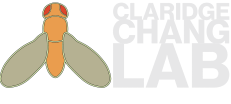Research Assistant in Behavioral Neuroscience
Neuroscience and Behavioral Disorders Program
Duke-NUS Medical School
The Singapore-based Duke-NUS Graduate Medical School is a collaboration between Duke University and the National University of Singapore. It has a mission for research and training biomedical scientists and physicians. The Laboratory of Neurogenetics under the direction of Assistant Professor Adam Claridge-Chang focuses on analysing essential brain functions with behavioural, genetic, anatomical and physiological methods, with an aim to discovering some of the basic components and mechanisms that underlie psychiatric and cognitive dysfunction. The laboratory uses Drosophila neurogenetic methods combined with ongoing molecular, instrumentation and analytical tool development and application to understand the molecules and circuits that support learning. For additional information please visit www.claridgechang.net.
The lab is seeking to appoint a research assistant to investigate how the brain alters preference for an olfactory stimulus.
A candidate must have:
A candidates application will be strengthened by:
Your main duties would include but are not limited to the following:
Interested applicants are welcome to email
Neuroscience and Behavioral Disorders Program
Duke-NUS Medical School
The Singapore-based Duke-NUS Graduate Medical School is a collaboration between Duke University and the National University of Singapore. It has a mission for research and training biomedical scientists and physicians. The Laboratory of Neurogenetics under the direction of Assistant Professor Adam Claridge-Chang focuses on analysing essential brain functions with behavioural, genetic, anatomical and physiological methods, with an aim to discovering some of the basic components and mechanisms that underlie psychiatric and cognitive dysfunction. The laboratory uses Drosophila neurogenetic methods combined with ongoing molecular, instrumentation and analytical tool development and application to understand the molecules and circuits that support learning. For additional information please visit www.claridgechang.net.
The lab is seeking to appoint a research assistant to investigate how the brain alters preference for an olfactory stimulus.
A candidate must have:
- A high level of motivation and a keen interest in neuroscience
- A BSc, MSc or equivalent in a relevant field
- A background and knowledge of neuroscience
- Strong computer skills for recording, analyzing and organizing data
- An ability to work closely with other scientists and an ability to quickly learn new techniques
- Excellent communication, teamwork and project management skills
- Experience in scientific sourcing & procurement
A candidates application will be strengthened by:
- Relevant skill set to perform the following techniques to their project: behavioural experimentation including videographic analysis, neurogenetic and neuropharmacological experiments, the use and programming of software for data analysis and statistics (including MATLAB, Excel, R and/or other statistical packages), apparatus design & testing, real-time apparatus control methods including stimulus delivery and control, fluorescence microscopy, laser confocal microscopy, image analysis (ImageJ, Zeiss LSM Browser, PhotoShop, Metamorph and/or MATLAB) and neuroanatomical analysis (e.g. Neurolucida)
- Knowledge of other techniques including: Drosophila genetics, molecular biology (subcloning methods including restriction digests, PCR and gel electrophoresis), methods for analysis of DNA and protein sequence (BLAST, Vector NTI, etc.), protein analytical methods, use of genetically-encoded indicators (GFP and derivatives, luciferase), analysis of gene expression (Q-PCR, Northern blotting, in situ hybridization), immunohistochemistry, fine-scale brain dissection, graphic design (e.g. Adobe Illustrator), database use (e.g. Filemaker Pro), electronics, electrophysiology, optogenetic physiology and two-photon microscopy. Training will be available in some or all of these techniques where needed and appropriate.
Your main duties would include but are not limited to the following:
- To pursue one or more projects using the above described methods and others as necessary for the project
- To learn new methodologies when necessary or useful
- To participate in the education and training of other staff as appropriate
- To acquire and maintain knowledge of the literature relevant to the project
- To attend appropriate scientific seminars and meetings and to remain current with the broader field of neurogenetics
- To effectively analyse your results
- To regularly communicate your results to the rest of the laboratory members
- To work with colleagues on collaborative projects
- To share responsibility for the housekeeping of the laboratory area, general maintenance tasks and fly stock maintenance
- To conduct scientific sourcing and procurement
- To share responsibility with others for the safety in the laboratory
- To perform any other duties as may be required from time to time to ensure the efficient running of the laboratory
Interested applicants are welcome to email
- a letter describing your interest in neuroscience
- a detailed resume,
- supporting documents
- contact details for at least two referees

 RSS Feed
RSS Feed